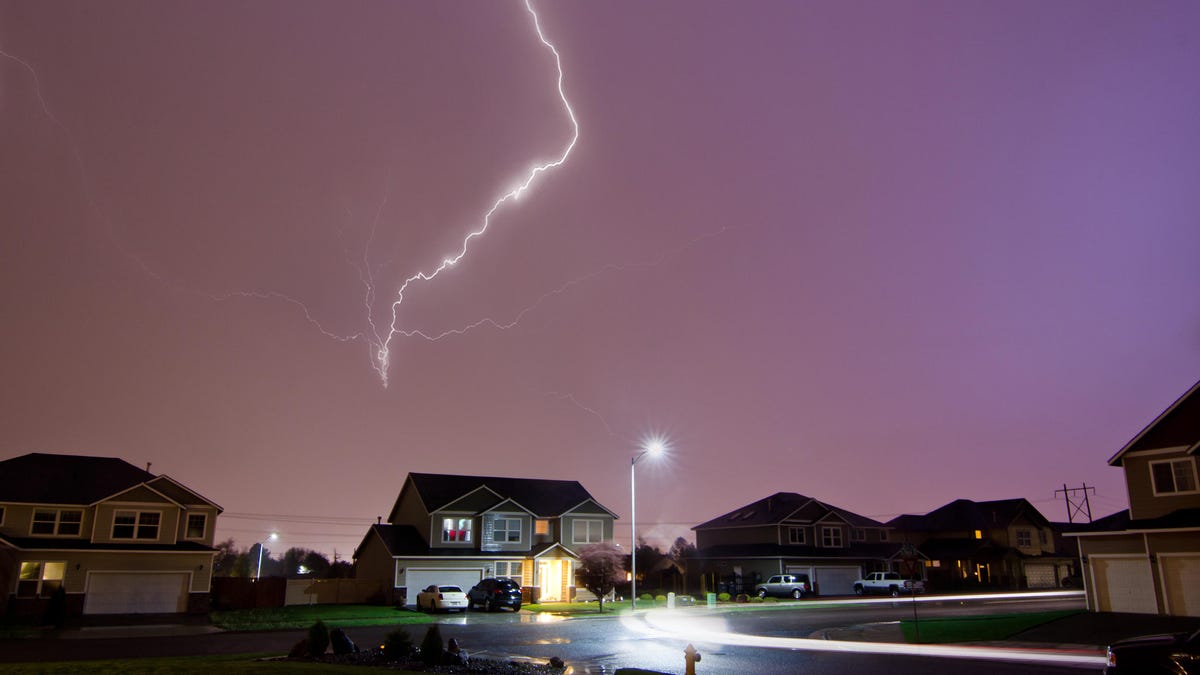Can a thunderstorm destroy your electronics?
Are your appliances and tech safe during a storm if you don't unplug them? Don't bet on it.

As a kid, my parents always had me run around the house to unplug all of the electronics and appliances during a storm to prevent them from being damaged by lightning.
Maybe you had that experience, too. Or maybe some person in your adult life has shared that bit of advice with you, and you wonder if it's true.
Do you really need to unplug everything when there's a lightning storm? Here are the facts.
Truth or myth?
According to the Department of Homeland Security, you should unplug all of your appliances. This is because lightning striking near a local electric pole can cause a surge of electricity to burst through the power lines.
Typically, anything that plugs into a wall outlet in North America is designed to use around 120 volts of electricity and can withstand up to 169 volts. In many other parts of the world, devices that plug in to get power use up to 240 volts.
When lightning creates a power surge, the voltage coming through the lines is much more than 169 or 240 volts. We're talking millions of volts. Your tech and appliances aren't made to withstand that much electricity all at once coming through your wall socket and will essentially fry.
While surges due to lightning are rare, you should at the very least unplug your high-ticket electronics, like your TV or gaming console. Unplugging your fridge can leave food items vulnerable to spoilage, so I choose to keep mine plugged in. You may also want to leave your stove plugged in if it is difficult to remove the plug from the outlet.
Be safe
There's one important thing to remember when pulling the plug. You can be electrocuted if you touch a cord during a surge. It's best to unplug items before a storm gets to your area, according to the National Weather Service.
If you notice the beginnings of a storm, check your local weather to get a sense of what's coming. There's no need to unplug for a mild rain shower, but you should for an impending thunderstorm.
What if I have a surge protector?
Many people think that surge protectors that you plug into the wall will save their electronics from power surges due to lightning, but they won't.
Surge protectors are meant to protect against common, small surges in the electrical grid that happen from time to time. They can help reduce the power surge before it reaches your device, but they are not designed to protect items from the massive surge of electricity that happens during a lightning strike.
What can protect your devices during a storm are whole-house surge protectors or suppressors. These are much more expensive than an outlet surge protector and are meant to be installed on your house's main electrical panel.
They help suppress large power surges caused by lightning that enter your home via the power lines. However, they cannot keep your home safe if it gets struck by lightning.

